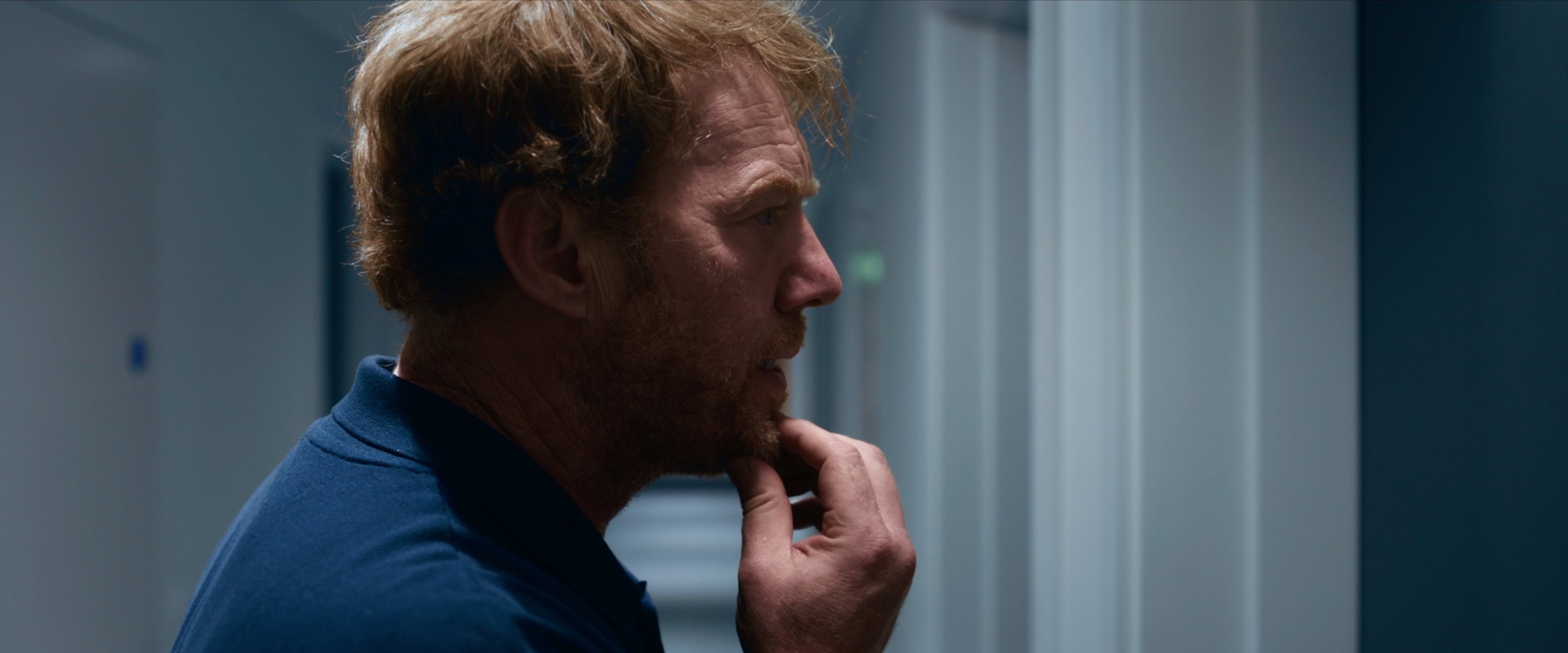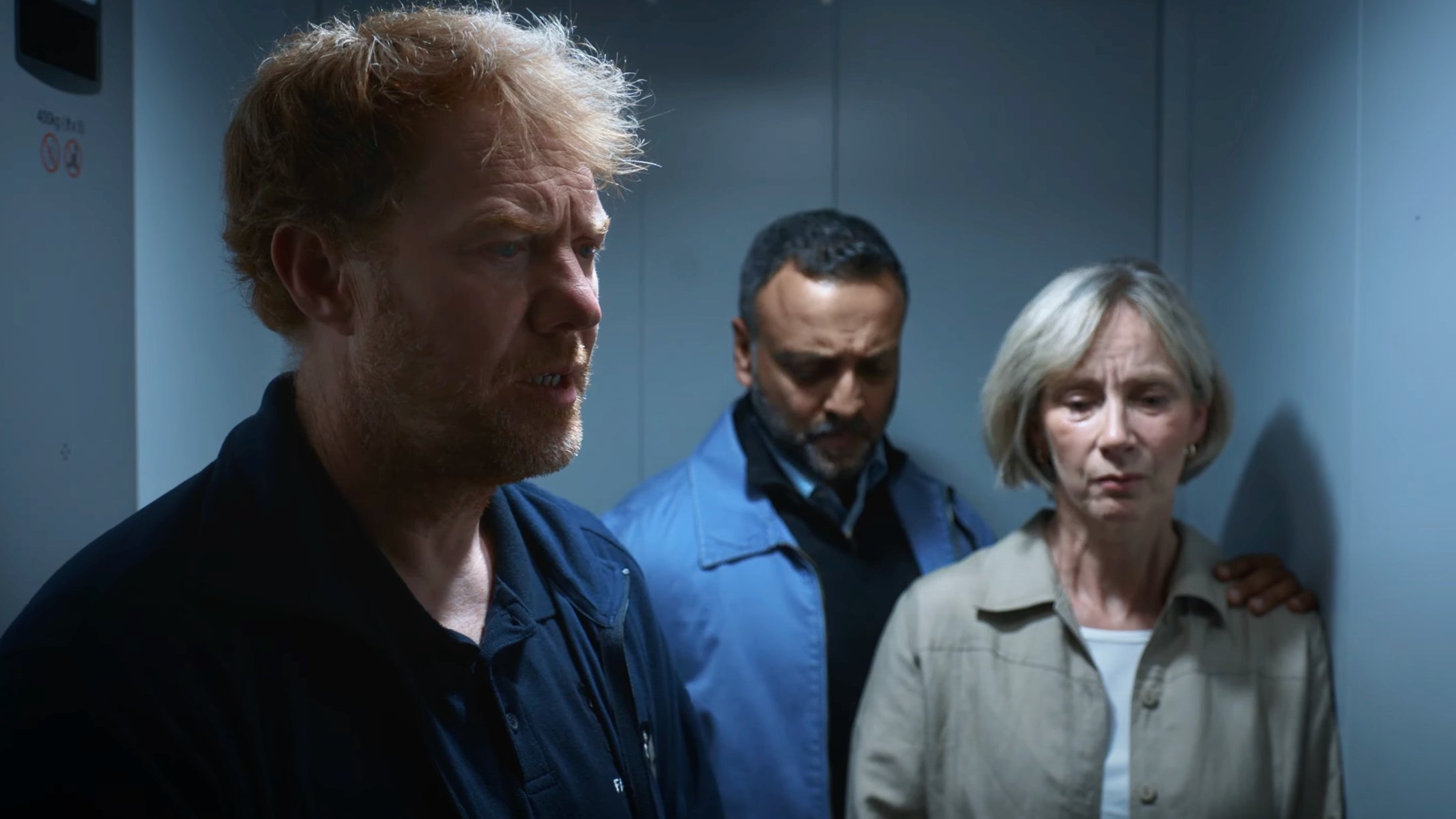
Harry Richards talks about his and writer Rufus Love’s new film Contact Hours
Harry Richards talks about his and writer Rufus Love’s new film Contact Hours
Student suicide has been left off the syllabus for too long, writes Niall PG-Tainton
Director Harry Richards
It was almost poetic the way director Harry Richards’s screen buffered and lagged through our Zoom interview – a reminder of a time almost forgotten to us now, when the whole world was isolated and human contact was all but illegal. His and writer Rufus Love’s short film Contact Hours is a moving and alarming exploration of the dangers of isolation within the student population. The titular contact hours haunt many a university student, specifically the glaring lack of them since the pandemic, and this short plays on this idea, highlighting that despite the emphasis placed on them by course organisers and university open days, the reality doesn’t touch upon the more essential meaning of just ‘being in contact with others.’
Contact Hours follows the anguish of a university caretaker who finds the body of a student who has died by suicide. Deftly played by Kris Hitchen (Sorry We Missed You), the caretaker is clearly fatigued and overwhelmed by his unsociable work hours, tedious requests from innocuous but senseless students, and an uneasy, reticent relationship with his son (George Osborne). He struggles to come to terms with his ignorance and subsequent guilt towards the student who he did not check on the night before he found him.
The incident is a jolting reminder that the student could have been his own son. This triggers him to finally sit down and have the conversation so many of us avoid having with those we love, whether out of fear, insecurity or embarrassment. The caretaker is now obsessed with looking for signs, which assumes they will always be present. It seems that no one saw the student’s suicide coming, leaving us with the important message that we must actively discuss mental health and suicide no matter our perception of someone else’s happiness.
This is Richards’s goal as director: to open an honest discussion about suicide. Research from the Clinical Psychology Review in 2018 shows that talking about suicide is proven to reduce it happening. “The best way of making someone feel safe and comfortable talking about suicide is to use the word itself,” says Richards. Both the caretaker and his son despise the formality of their heart-to-heart. But, as a father having himself been traumatised after the discovery of the student whose suffering was apparently hidden, this sit-down might be the difference between life and death for the both of them.
This film really shines when it closes in on the awkwardness of these conversations, how we see ourselves in the way the characters dance around what they want to say versus what they feel they should say to each other. This film is not a research paper, nor is it a campaign. Love’s and Richards’s aim was for the characters’ performances to do the talking, rather than shoehorn into the dialogue trite questions like ‘I wanted to ask you if you’re thinking about suicide’. “We didn’t want to create a film where it’s two people… doing everything right and having a conversation that perfectly depicts how to speak about suicide. Our characters needed to not always say the right things,” Richards says.
Throughout our conversation and during screening Q&As, it’s clear that Richards has a talent for communicating the darkest of themes and ideas in a progressive, affirmative manner without losing any of the necessary sensitivity. In his most personal comment, he admits, “I’ve definitely had my own experiences with anxiety and depression as many people have… but I think those issues can be exacerbated when you’re in a space where it feels like you could easily slip away.” He remembers his own university accommodation: “The sterility of that building really shook me at the time. I felt so far away from everyone whenever I entered my room and it was something to do with the architecture – the safety of those buildings is so carefully considered from a fire safety point of view…but they also put so much distance between all of the different students living in them.”
Richards and Love represent this idea in the film through the motif of doors. Every time a door closes, the audience is left with an ominous silence, the significance of each door’s unassuming ability to separate us and leave us alone with our darkest thoughts. At one point, we see the door of the student who takes his own life lined up next to all the others, with nothing distinguishing it except for what’s happening behind it. But for the caretaker, it looms large, towering over him like a monolith of guilt and shame.
For Richards, the most upsetting part of the shoot was for the scene where the dead student’s parents arrive on campus to collect their child’s belongings. Their long walk down the soulless corridor of the student halls was originally broken up into multiple different shots portraying the various perspectives of the parents and the caretaker. However, “as soon as we got in the corridor on the day, and I was walking down it with the actors, it suddenly struck me that this had to be a one-take scene,” Richards says. He wanted the audience to understand the pain of this walk for the characters, and for all of the parents who have been bereaved by suicide. “The moments I feel proudest of in this film are when the rhythm of our filming exactly matches the emotion. It’s a long walk because they’re anticipating what’s ahead,” Richards explains.
Contact Hours is not an advert or a campaign for mental health or suicide prevention, nor is it a guide for people to follow when confronted by life’s depressive setbacks. What the film offers instead is something just as vital: an honest, unflinching conversation. The stabbing pain of suicide is portrayed free of sensationalism, and the viewer is invited to sit with discomfort, to reflect, maybe talk. In a world where silence can be deadly, that kind of honesty really matters.
If you are experiencing thoughts of suicide, you are worried about someone, or you have been affected by suicide loss, you can find advice and support here: bbc.in/3SSRdR8






